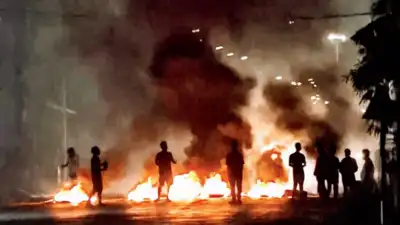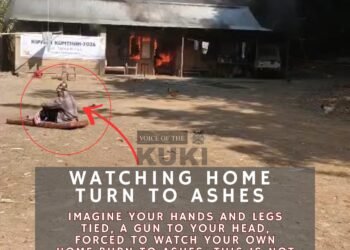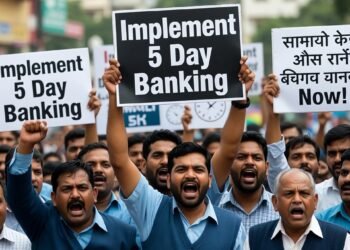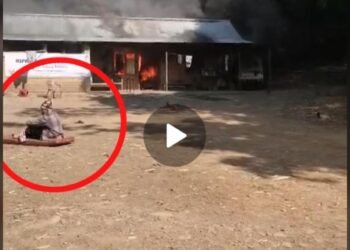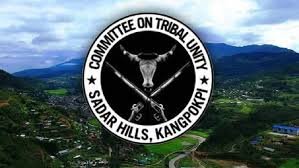The move follows months of delay despite earlier Supreme Court orders and comes as part of a high-stakes constitutional challenge tied to ST status for Meiteis.
BY PC Bureau
July 2, 2025 — The Government of Manipur has directed senior police and administrative officials to urgently furnish detailed reports on properties affected by violence, including those burnt, looted, or encroached upon, particularly those belonging to internally displaced persons (IDPs). The move comes in compliance with directions arising out of a pending Special Leave Petition (SLP) before the Supreme Court of India: Dinganglung Gangmei vs. Mutum Churamani Meetei & Others (Diary No. 19206 of 2023).
The official letter, issued by Dr. Mayengbam Veto Singh, Joint Secretary (Home), and dated June 26, 2025, was marked as a “most urgent matter” in connection with the high-profile SLP. It instructs the Director General of Police and Deputy Commissioners of all affected districts to submit their district-wise status reports no later than July 4, 2025.
The circular specifies six categories for reporting:
- Buildings/properties completely or partially burnt
- Buildings looted or burgled
- Properties trespassed upon
- Properties encroached upon
- Properties damaged or destroyed
- Specific action taken in response to these incidents
Failure to meet the deadline, the letter warns, will impede further legal and administrative actions.
Background to the Supreme Court Case
The SLP stems from the widespread ethnic violence that erupted in Manipur in May 2023, primarily between the Meitei and Kuki-Zo communities. The conflict was significantly fueled by a March 27, 2023, order from the Acting Chief Justice of the Manipur High Court, which directed the state government to consider including the Meitei community in the Scheduled Tribes (ST) list. This order was seen as a direct threat to the land rights, job reservations, and identity of existing tribal communities, particularly the Kuki-Zo.
READ: Opinion: Kuki-Zo People Face a Time of Reckoning
Dinganglung Gangmei, a BJP MLA and Chairman of the Hill Areas Committee (HAC), challenged this High Court order in the Supreme Court. His arguments centered on the High Court’s alleged lack of power to issue such a directive, the flawed nature of the proceedings (HAC not being a party), and the order’s direct contribution to the escalating violence.
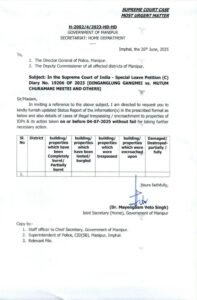
Conversely, respondents, including Meetei civil society leaders, have raised counter-allegations of land encroachment and illegal settlements by “foreign-origin infiltrators,” further polarizing the discourse.
Supreme Court’s Broad Intervention
The Supreme Court, led by then Chief Justice Dr. D.Y. Chandrachud, broadened its focus beyond the initial challenge to the High Court order, prioritizing the restoration of peace, relief, and rehabilitation in Manipur. The Court has repeatedly emphasized the need for vigilance and prevention of further violence, directing state authorities to address grievances and foster confidence.
A significant step was the appointment of a three-judge committee headed by Justice Gita Mittal (former Chief Justice of Jammu and Kashmir High Court) to oversee relief and rehabilitation efforts. This committee is tasked with providing regular reports to the Court on the status of affected properties and government actions. The Supreme Court has also monitored investigations, particularly concerned cases of sexual violence, and inquired into delays in FIR registration.
 READ: In a Rebuff to China, Dalai Lama Says Tibet Will Choose His Successor
READ: In a Rebuff to China, Dalai Lama Says Tibet Will Choose His Successor
During hearings, the Supreme Court expressed “astonishment” at the Manipur High Court’s direction on ST status, reiterating that High Courts lack the power to “add or subtract” from the Scheduled Tribes List, as clarified by previous constitutional bench judgments. (Note: The Manipur High Court subsequently deleted this contentious paragraph from its March 2023 order in February 2024, acknowledging it was passed in “misconception of law.”)
Delayed Documentation and Accountability
The Manipur government’s current directive highlights a delayed institutional effort to systematically document the destruction and encroachment that has occurred over the past two years of conflict. Despite widespread reports since 2023 of large-scale burning of homes, looting, and illegal occupation of abandoned land, a unified database or public legal assessment has been conspicuously absent.
Civil society groups and opposition politicians have criticized the state for what they term “selective blindness” to encroachment and targeted violence, arguing that the lack of timely documentation has fueled retaliatory cycles of violence and complicated future resettlement and compensation efforts.
Implications of the Data Submission
The urgency of the data request from the Supreme Court underscores the judiciary’s pressure on the state to provide credible, quantifiable evidence of its actions—or inactions—in protecting civilian properties and curbing illegal occupation. The compiled data will be critical in the ongoing SLP, potentially influencing the Supreme Court’s decisions regarding state accountability, property rights, and the future of thousands of IDPs from both Meitei and Kuki-Zo communities. Informed sources suggest this data could also play a pivotal role in determining whether central government intervention, such as direct administration or enhanced compensation, might be warranted in affected districts.
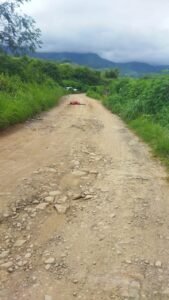 READ: KNF(MC) Condemns Killing of Top KNA Cadres, Urges End to Fratricide
READ: KNF(MC) Condemns Killing of Top KNA Cadres, Urges End to Fratricide
Statistics of the Conflict (as of November 2024, where available):
- Fatalities: 258 people have been killed in the violence. Earlier figures also mentioned over 1,000 injured, and 32 missing.
- Displacement: Over 60,000 people have been displaced, with over 50,000 still residing in relief camps as of May 2024.
- Houses Burnt/Damaged: 4,786 houses were burnt. Earlier figures indicated over 17,000 cases of arson or vandalism.
- Looted Weapons: Approximately 6,000 arms and 600,000 rounds of ammunition were reported to have been looted from state armouries. Around 3,000 looted weapons have been recovered.
- FIRs: As of August 2023, 4454 FIRs were registered for arson, 4148 for looting, and 4694 for destruction of house property. There were 11 FIRs involving crimes against women and children out of a total of 6,500 cases registered from May 3 to July 31, 2023, including 1 case of rape and murder, 3 for rape/gang rape, and 6 for outraging modesty.
As district administrations race to compile the required data, the forthcoming reports will critically inform the state’s affidavit in the Supreme Court, with any discrepancies potentially leading to judicial censure and further erosion of public trust in the state’s handling of the protracted ethnic crisis.
READ: Biren Singh: Aadhaar Must Align with ILP to Safeguard Locals



